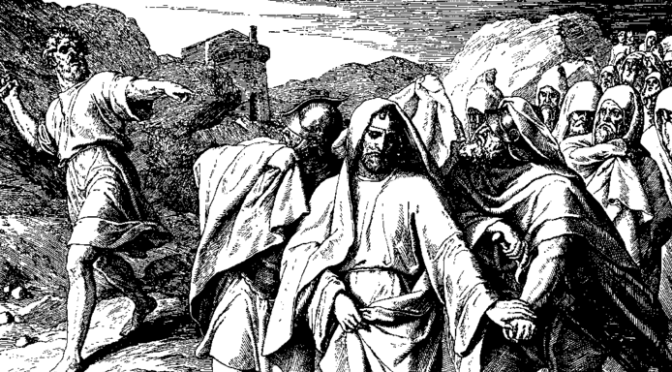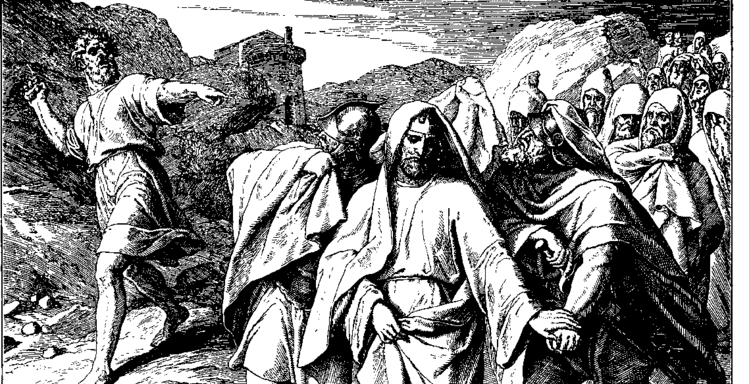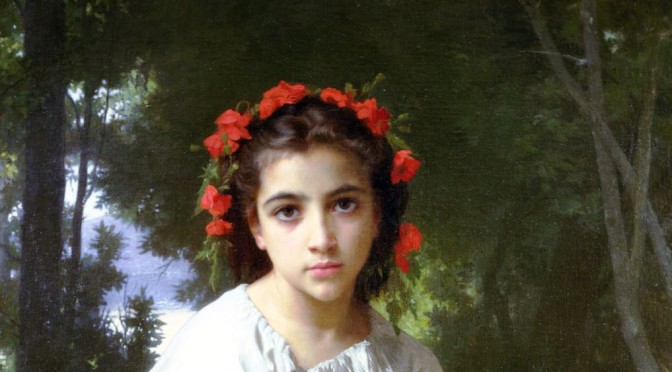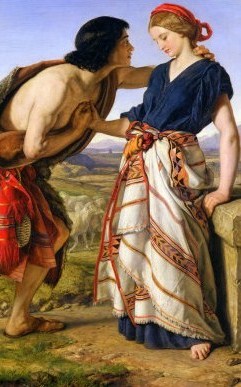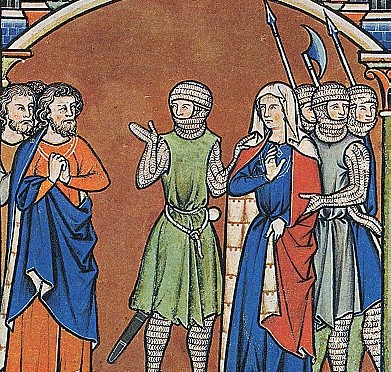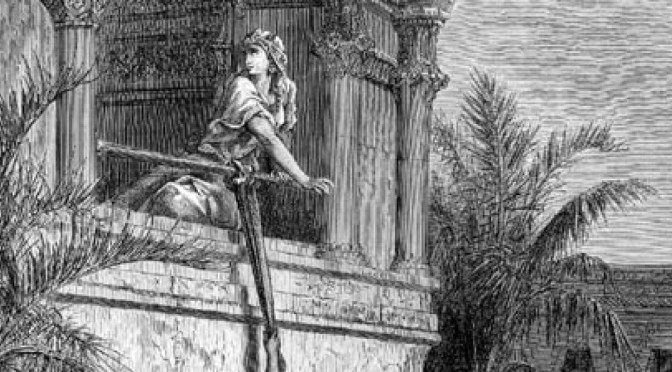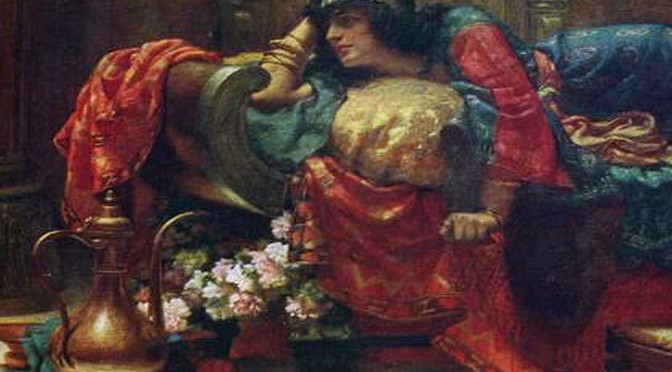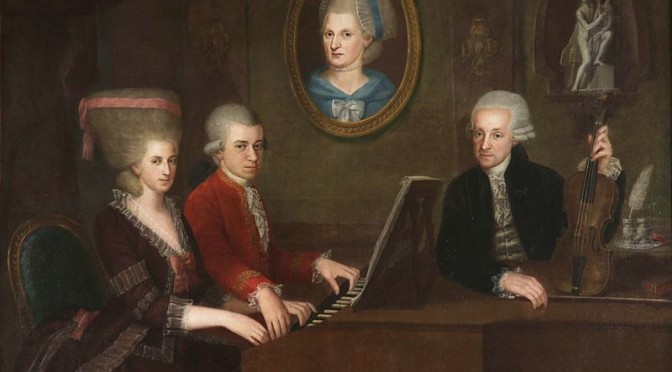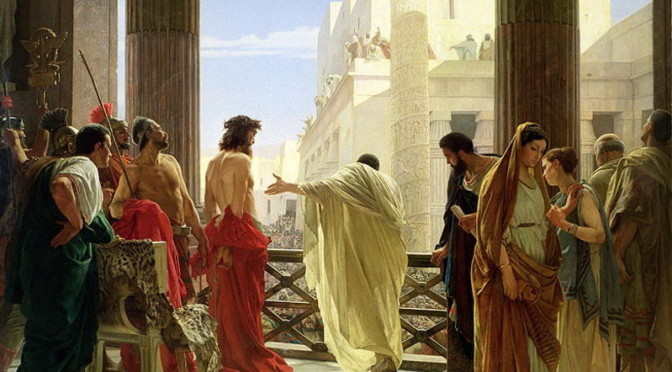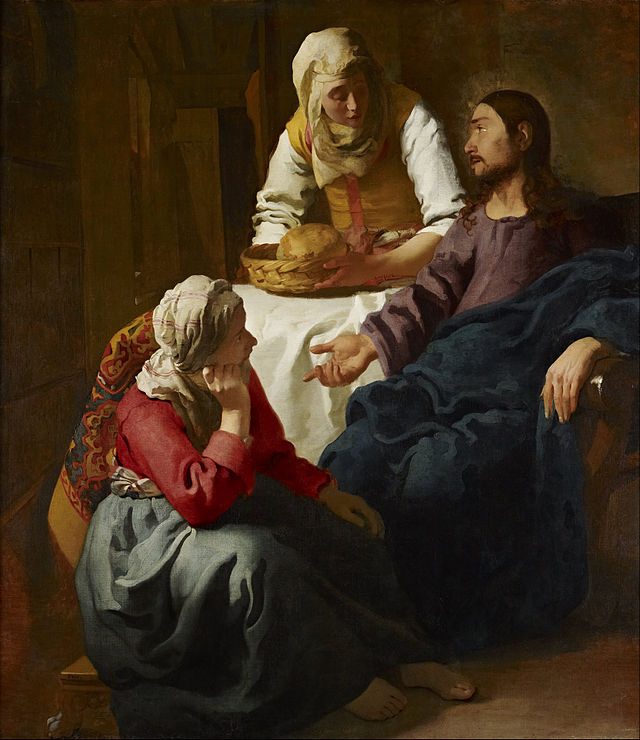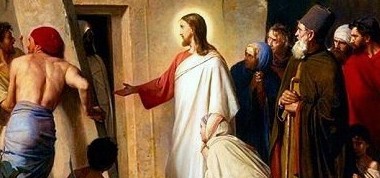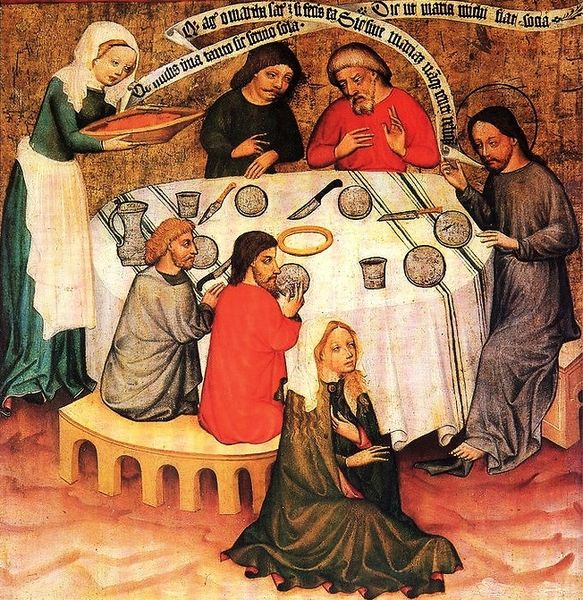Life would be a dark place if it weren’t for music. But thanks to creators of music, my world is a happier place. I’m indebted to so many but I have to say there are some standouts that paved the way for my love of music. Maria Anna Mozart, Fanny Mendelssohn, Clara Schumann, Jane Bastien, and Martha Patten.
Maria Anna Mozart

The two prodigy siblings. Wolfgang was inspired by his big sister, “Nannerl” Anna Maria
When we hear “Mozart,” don’t we think of the boy? Wolfgang Amadeus? We don’t think of his talented sister Anne Maria Mozart as much. Smithsonian magazine called her “The Family’s First Prodigy.”
Her father, Leopold–a court musician and teacher to his children–took them on tour across Europe. The trio was a hit and the siblings made a good team. She was considered one of the greatest pianists.. However, Leopold pushed more for his son’s performances as it was easier for males to break into a professional music career.
Wolfgang saw Anna Maria as a role model. She accompanied him and played his compositions. She also wrote her own, which we sadly don’t have today. But we do have their letters and her diaries which display affection and eccentricity.
I can only imagine her reactions when she opened to write in her diary and found that her brother was at it again. Pretending to be her and writing irreverent language that I rather not repeat.
Fanny Mendelssohn

Another equally talented sister. She composed over 460 compositions and sometimes they were attributed to her brother, Felix, because it just wasn’t proper for a woman to publish music. Felix, though, corrected Queen Victoria that a piece she was fond of was not by him but by Fanny.
She said that one of her piano works, The Year, was for “home use entirely.” Of course it wasn’t, but I’m sure she gave informal concerts to her family that the world will never know.
Clara Schumann

Clara was romoted by family and friends but had a mind of her own and showed the world that women are master performers too.
Clara’s career was promoted by her father and associates but had a mind of her own. She took the opportunity to show the world that female pianists can be equal to men. I thank her for that.
I’m not sure if I would have gotten along with her, though. But it was nice of her to promote the career of her husband, Robert. I also have to laugh that while he was a student and guest of her father, Robert scared her by popping out of nowhere dressed as a ghost. She wouldn’t fall in love with him til later, but perhaps that’s when the sparks started to fly,
Jane Bastien
Everyone in my piano teacher’s studio knew I was on the lowest piano level. (Some things haven’t changed much.) Even when I was promoted to second on the program, it was common knowledge.. For years, I was playing pieces by either Jane or James Bastien. When I saw other names such as Mozart, Beethoven, Schumann, I longed to be playing those composers—or any other composer however obscure. Anyone but Bastien.
HOWEVER……..
Jane Bastien is still one of my favorite composers. It’s evident in the Bastien teaching books that she’s a brilliant teacher. Thanks to her I was wowed and inspired by the other students who went up on stage playing songs by composers whose names I couldn’t pronounce.
I remember bits and pieces from other famous composers’ songs I eventually played, but I remember the very first piano song exactly I performed in my piano teacher’s annual recital—which of course was a Bastien song.
I became really excited when Jane Bastien was in a piano convention center in San Diego. She was a gracious, smiling woman, and I got to take a picture with her. Believe me, I couldn’t have been more ecstatic to meet her than meeting the Mozarts themselves.
Martha Patten

I’m honored my favorite pianist happens to my mom. She could have made big bucks but continues to share her expertise and expressive music with others. Here she is teaching a grandchild.
A Broadway performer said my mom could have made a lot of money if she moved to New York. My mom can play by ear, improvise, transpose music into different keys in a matter of seconds.
The piano could be considered her unofficial sibling when she grew up. Piano and clarinet are her specialties, but she can pick up other instruments. She taught band, choir, drama, and private piano lessons. Her students are complimentary of her and have invited her to watch them in performances. One student, now a junior high school history teacher, puts on an annual medieval faire in which his students get into character and show the oddities of the Middle Ages. At the beginning of one of his faires, he told the audience how he couldn’t remember much of what he learned in middle school but could remember the words to “76 Trombones” and then announced the presence of my mom.
I can’t count how many times she accompanied a variety of groups–school plays, choir, church functions, talent shows, weddings, and just all type of revenues. I know if my lifetime, she’s played and performed for hundreds of people. So I’ll just say thousands.
Her genius is impressive, but her trademark is how she makes the individual feel. I’m honored that I get a front row seat and hear her best performances–which are played at home.
By the way, she has composed but they are usually “for home entirely.” But my favorites are “Crib Lullaby,” “One By One and Two By Two,” and “No Tail.”
Sources and Links:
http://www.pianowomen.com/
http://www.smithsonianmag.com/arts-culture/maria-anna-mozart-the-familys-first-prodigy-1259016/?no-ist
Wikipedia
http://historyweird.com/1780-mozart-trolls-his-sister/
Images:
Mozart Family Portrait by Croce
Wolfgang and Nannerl Mozart by Eusebuis Johann Alphen
Portriat of Fanny Hensel 1842 by Moritz Daniel Oppenheim
Drawing of Schumann
Grandma Teaching another Prodigy courtesy of Douglas Patten


